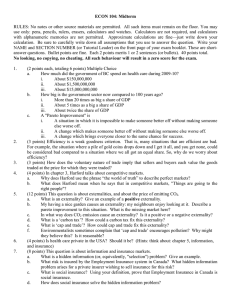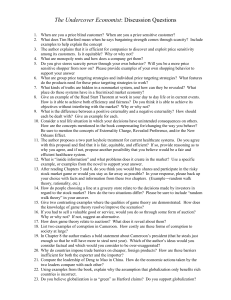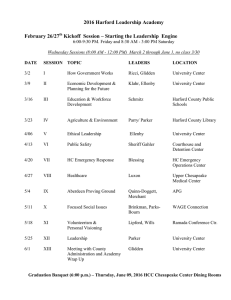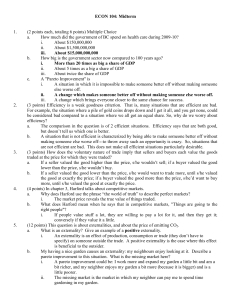More Study Questions for the First Midterm 1.
advertisement
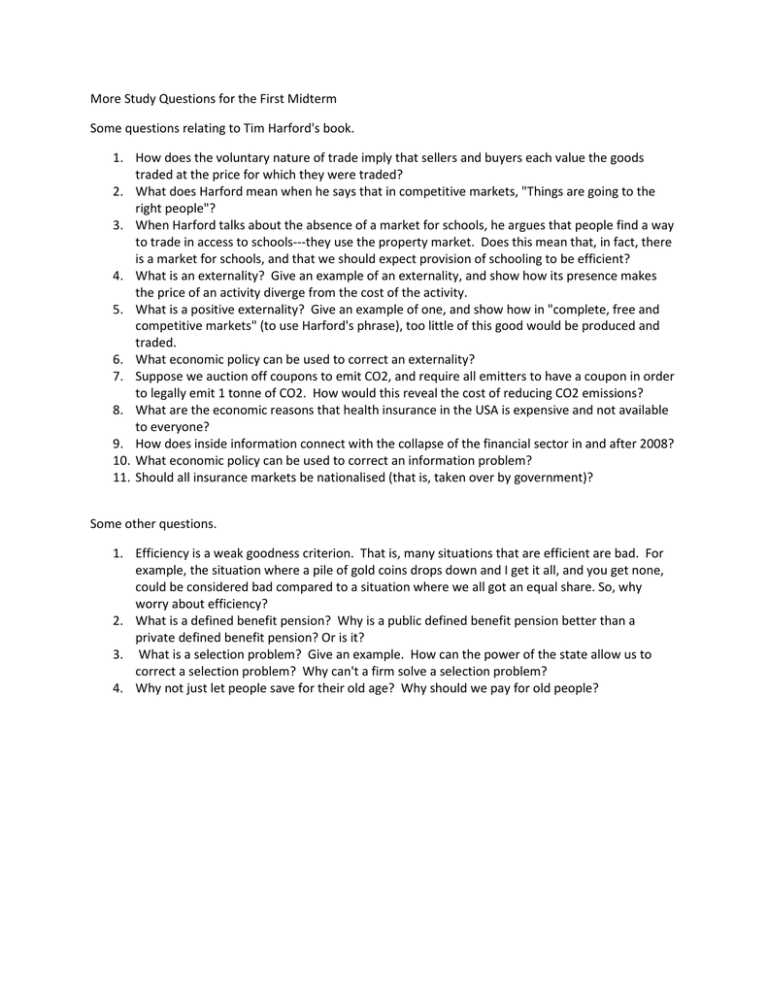
More Study Questions for the First Midterm Some questions relating to Tim Harford's book. 1. How does the voluntary nature of trade imply that sellers and buyers each value the goods traded at the price for which they were traded? 2. What does Harford mean when he says that in competitive markets, "Things are going to the right people"? 3. When Harford talks about the absence of a market for schools, he argues that people find a way to trade in access to schools---they use the property market. Does this mean that, in fact, there is a market for schools, and that we should expect provision of schooling to be efficient? 4. What is an externality? Give an example of an externality, and show how its presence makes the price of an activity diverge from the cost of the activity. 5. What is a positive externality? Give an example of one, and show how in "complete, free and competitive markets" (to use Harford's phrase), too little of this good would be produced and traded. 6. What economic policy can be used to correct an externality? 7. Suppose we auction off coupons to emit CO2, and require all emitters to have a coupon in order to legally emit 1 tonne of CO2. How would this reveal the cost of reducing CO2 emissions? 8. What are the economic reasons that health insurance in the USA is expensive and not available to everyone? 9. How does inside information connect with the collapse of the financial sector in and after 2008? 10. What economic policy can be used to correct an information problem? 11. Should all insurance markets be nationalised (that is, taken over by government)? Some other questions. 1. Efficiency is a weak goodness criterion. That is, many situations that are efficient are bad. For example, the situation where a pile of gold coins drops down and I get it all, and you get none, could be considered bad compared to a situation where we all got an equal share. So, why worry about efficiency? 2. What is a defined benefit pension? Why is a public defined benefit pension better than a private defined benefit pension? Or is it? 3. What is a selection problem? Give an example. How can the power of the state allow us to correct a selection problem? Why can't a firm solve a selection problem? 4. Why not just let people save for their old age? Why should we pay for old people?

